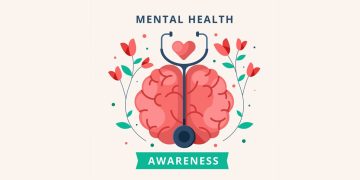The Ultimate Guide to Stress Management Techniques: Tips for Reducing Stress and Boosting Productivity
Stress is a common experience that can have a significant impact on our mental health, physical well-being, and overall productivity. In today’s fast-paced world, it’s essential to have effective stress management techniques in place to help us cope with the demands of daily life. This ultimate guide will provide you with valuable tips for reducing stress and boosting productivity.
What is Stress?
Stress is the body’s response to a threat or demand, often referred to as the “fight or flight” response. It is a natural reaction that helps us deal with challenging situations. However, when stress becomes chronic or overwhelming, it can have negative effects on our health and well-being. Common symptoms of stress include anxiety, irritability, fatigue, and difficulty concentrating.
Why is Stress Management Important?
Effective stress management is essential for maintaining good physical and mental health. When we are stressed, our bodies release cortisol, a stress hormone that can have harmful effects on various bodily systems. Chronic stress has been linked to a wide range of health problems, including heart disease, obesity, and depression. By implementing stress management techniques, we can reduce the impact of stress on our bodies and minds.
Stress Management Techniques
1. Deep Breathing
Deep breathing exercises are a simple and effective way to reduce stress and promote relaxation. Take slow, deep breaths in through your nose and out through your mouth. Focus on your breath and try to clear your mind of any negative thoughts or distractions.
2. Meditation
Meditation is a powerful tool for reducing stress and improving mental clarity. Find a quiet space, sit comfortably, and focus on your breath. By practicing meditation regularly, you can train your mind to remain calm and focused, even in stressful situations.
3. Exercise
Physical activity is an excellent way to reduce stress and boost your mood. Whether you prefer running, yoga, or weightlifting, regular exercise can help release endorphins, the body’s natural stress relievers. Aim for at least 30 minutes of exercise per day to keep stress at bay.
4. Time Management
Poor time management can be a significant source of stress. To reduce feelings of overwhelm, try creating a daily schedule or to-do list. Prioritize your tasks and break them down into smaller, more manageable steps. By staying organized and focused, you can prevent stress from building up.
5. Healthy Eating
Eating a balanced diet rich in fruits, vegetables, and whole grains can help reduce stress and improve your overall well-being. Avoid excessive caffeine, sugar, and processed foods, which can exacerbate stress levels. Make sure to stay hydrated and nourish your body with nutrient-dense foods.
6. Mindfulness
Practicing mindfulness involves staying present in the moment and being aware of your thoughts and feelings without judgment. By cultivating mindfulness, you can better manage stress and respond to challenges with clarity and composure.
Benefits of Stress Management
By implementing stress management techniques into your daily routine, you can experience a wide range of benefits, including:
- Improved mental clarity and focus
- Enhanced immune function
- Better sleep quality
- Reduced risk of chronic diseases
- Increased productivity and motivation
Conclusion
Stress is a common experience that can have detrimental effects on our health and well-being. By incorporating stress management techniques into your daily routine, you can reduce stress levels, improve productivity, and enhance your overall quality of life. Remember to prioritize self-care and make time for relaxation and rejuvenation. By taking proactive steps to manage stress, you can cultivate resilience and face life’s challenges with grace and ease.
For more information on stress management techniques and tips for reducing stress, contact us today!
References
1. American Psychological Association. (2021). Stress effects on the body. https://www.apa.org/topics/stress
2. Mayo Clinic. (2021). Stress symptoms: Effects on your body and behavior. https://www.mayoclinic.org/healthy-lifestyle/stress-management/in-depth/stress-symptoms/art-20050987












































